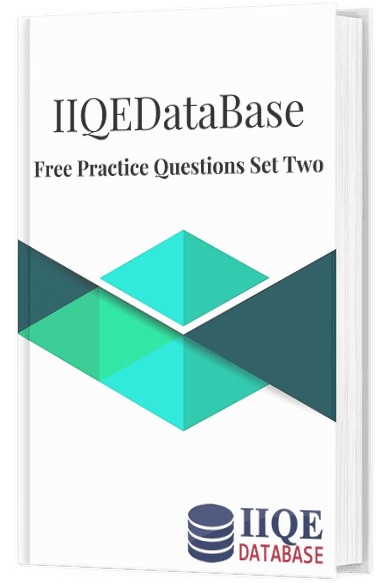Do you struggle with understanding risk management and insurance planning concepts for the IIQE exam? You’re not alone. In fact, 70% of students find these topics challenging.
But fear not! This article will dive deep into the key concepts you need to know to ace the exam.
From exploring risk management strategies to understanding insurance planning principles, we’ve got you covered.
So grab your study guide and get ready to master these crucial exam concepts.
Key Takeaways
- Identify potential risks and assess their probability and impact.
- Prioritize risks based on severity and implement risk mitigation strategies.
- Understand insurance policies and coverage to provide financial protection and mitigate risks.
- Consider financial goals, risk tolerance, and budget when selecting appropriate insurance coverage and aligning policies with long-term objectives.
Risk Management in Financial Planning Exam Concepts
Risk management is a crucial aspect of financial planning exams. To succeed in these exams, you must have a solid understanding of risk management strategies and how they apply to insurance policy coverage.
Risk management strategies involve identifying, assessing, and prioritizing potential risks and then taking steps to minimize or eliminate them. In the context of financial planning exams, this means understanding the various types of risks that individuals and businesses face, such as market risk, credit risk, and operational risk.
It also involves understanding how insurance policies can help mitigate these risks by providing financial protection. This knowledge is essential because insurance planning is a fundamental concept in financial planning exams, and understanding how insurance policies work and what they cover is crucial for making informed financial decisions.
With this foundation in risk management, you can confidently move on to the next section about insurance planning in financial planning exam concepts.
Insurance Planning in Financial Planning Exam Concepts
When preparing for the exam, make sure you understand the key concepts related to insurance planning in financial planning. This is crucial as insurance products play a vital role in managing risks and protecting financial assets. Here are three important points to consider:
Risk assessment: Insurance planning involves evaluating potential risks that individuals or businesses may face. This includes identifying risks such as property damage, liability, or loss of income, and determining the appropriate insurance coverage to mitigate these risks.
Insurance products: Familiarize yourself with different types of insurance products available, such as life insurance, health insurance, property insurance, and liability insurance. Understand the purpose, coverage, and benefits of each product to recommend suitable options to clients.
Integration with financial planning: Insurance planning is an integral part of overall financial planning. It involves considering the client’s financial goals, risk tolerance, and budget while selecting insurance policies that provide adequate coverage and align with their long-term financial objectives.
By grasping these concepts, you will be well-prepared to navigate the insurance planning section of the iiqe exam.
Now, let’s move on to understanding iiqe exam concepts for risk management.
Understanding IIQE Exam Concepts for Risk Management
As you study for the exam, it’s important to understand the concepts related to risk management. Risk assessment is a crucial step in identifying potential risks and evaluating their impact on financial planning. It involves analyzing the likelihood and severity of risks, such as market fluctuations, inflation, and unexpected events.
To effectively mitigate these risks, you need to employ various strategies. Risk mitigation strategies aim to minimize the impact of risks and protect your financial goals. These strategies can include diversifying your investment portfolio, purchasing insurance coverage, and implementing risk management tools.
By understanding risk assessment and utilizing risk mitigation strategies, you can better prepare yourself for the challenges and uncertainties that may arise in financial planning.
Transitioning into the subsequent section about ‘key concepts for insurance planning in iiqe exam,’ it’s important to delve into the specific principles and techniques for insurance planning.
Key Concepts for Insurance Planning in IIQE Exam
To effectively prepare for the IIQE exam, it’s crucial to have a solid understanding of the key principles and techniques involved in insurance planning. Here are some important concepts to focus on when studying for the exam:
Importance of Insurance in Financial Planning: Insurance plays a vital role in protecting individuals and businesses from financial risks. Understanding how insurance fits into the broader context of financial planning is essential.
Risk Assessment and Analysis: Insurance planning involves identifying and analyzing potential risks that individuals and businesses may face. This includes evaluating the probability of occurrence and potential impact of each risk.
Insurance Products and Policies: Familiarize yourself with different types of insurance products, such as life insurance, health insurance, property insurance, and liability insurance. Understand the key features, benefits, and limitations of each policy.
Insurance Planning Process: Learn the steps involved in insurance planning, including identifying insurance needs, setting goals, selecting appropriate coverage, and regularly reviewing and adjusting insurance plans.
By mastering these concepts, you will be well-prepared to tackle the insurance planning section of the IIQE exam.
Now, let’s delve into exploring risk management and insurance planning in the IIQE exam.
Exploring Risk Management and Insurance Planning in IIQE Exam
Let’s now delve into how risk management and insurance planning are explored in the IIQE exam. In this section, you will learn about exam strategies and risk assessment techniques that are essential for success in the exam. Risk management involves identifying, assessing, and prioritizing risks to minimize potential losses. Insurance planning, on the other hand, focuses on selecting appropriate insurance products to mitigate these risks. To help you understand these concepts better, let’s take a look at the following table:
| Exam Strategies | Risk Assessment |
|---|---|
| Understand the exam format and question types | Identify potential risks |
| Practice time management during the exam | Evaluate the probability and impact of each risk |
| Familiarize yourself with key insurance concepts | Prioritize risks based on their severity |
Frequently Asked Questions
What Are the Benefits of Risk Management in Financial Planning?
In financial planning, risk management provides numerous benefits. It helps you identify potential risks and develop strategies to mitigate them, ensuring the security of your financial goals.
By assessing and managing risks, you can make informed decisions, allocate resources effectively, and protect your investments. Furthermore, risk management minimizes the negative impact of unforeseen events on your financial plan, allowing you to adapt and recover quickly.
Overall, incorporating risk management into your financial planning enhances your chances of achieving long-term success.
How Does Insurance Planning Fit Into the Overall Financial Planning Process?
Insurance planning is vital to the overall financial planning process. It plays a crucial role in safeguarding your financial future and protecting against unforeseen risks. By incorporating insurance into your financial plan, you can mitigate the impact of potential losses and ensure the stability of your assets.
Insurance provides a safety net, allowing you to focus on your long-term goals without worrying about unexpected events. It is an essential component of a comprehensive financial plan.
What Are the Main Components of Risk Management in the IIQE Exam?
When it comes to risk management, the main components you need to focus on are risk assessment and risk mitigation.
Risk assessment involves identifying and evaluating potential risks that could impact your financial planning. This includes analyzing various factors such as market volatility, economic conditions, and personal circumstances.
Once you’ve assessed the risks, the next step is risk mitigation, which involves implementing strategies and measures to minimize the impact of those risks. This could involve purchasing insurance policies or diversifying your investments.
Can You Provide Examples of Different Types of Insurance Policies Commonly Used in Financial Planning?
In financial planning, there are various types of insurance policies commonly used. These policies serve different purposes and provide financial protection in various scenarios.
Examples of insurance policies commonly used in financial planning include life insurance, health insurance, disability insurance, and long-term care insurance.
Life insurance provides a payout to beneficiaries upon the policyholder’s death, while health insurance covers medical expenses.
Disability insurance protects against loss of income due to disability, and long-term care insurance covers the costs of long-term care services.
How Does the IIQE Exam Assess an Individual’s Understanding of Risk Management and Insurance Planning Concepts?
In the IIQE exam, your understanding of risk management and insurance planning concepts is assessed thoroughly and analytically. The exam evaluates your individual understanding by testing your knowledge and application of these concepts.
It aims to gauge your ability to identify and manage risks, as well as your understanding of the various insurance policies commonly used in financial planning.
Conclusion
So there you have it! You’ve reached the end of this detailed and analytical article on IIQE risk management and insurance planning in financial planning exam concepts.
Throughout this article, we have explored the key concepts and strategies involved in both risk management and insurance planning. By delving into these important topics, you have gained a comprehensive understanding of the IIQE exam and how to effectively tackle questions related to risk management and insurance planning.
Now armed with this knowledge, you can confidently navigate the exam and come out on top like a fish in water.



